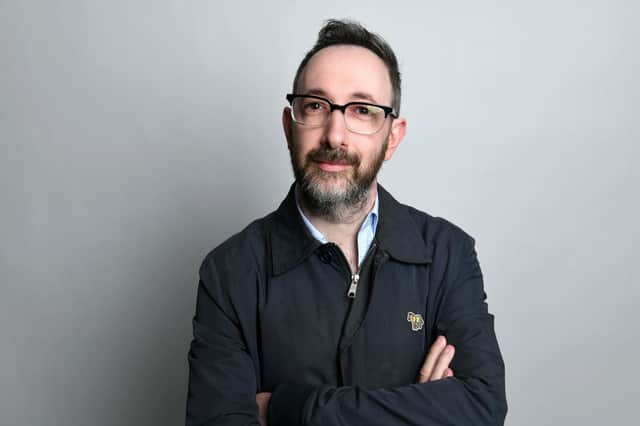Changing how people talk about parenting children with special needs


Dates include Friday, April 12 at Guildford’s G Live and Thursday, June 27 at Brighton Komedia.
Ashley has six children, three of whom have a special education needs (SEN) diagnosis. Between the children there is autism, Down syndrome, ADHD, speech and language disorders, heart defects, hearing loss, mobility issues, sensory needs and gastroenterological problems. As Ashley says: “Being a parent is tough and raising kids with special needs is even tougher. That’s why I am delighted to share our story with people and hopefully provide some much-needed light relief. Thankfully our kids provide so much comic material this has all taken much less time to write than you might imagine.
Advertisement
Hide AdAdvertisement
Hide Ad“We talk about the things that we know, don't we, and I talk about my experiences in the show in the hope that maybe people who haven't had those experiences can learn a bit more about them, but it's comedy. It's a bit of light relief to talk about some of the situations. I think the thing is that you can feel that you're alone when you're in difficulty. The book that the tour is based is the book that I wish I had had 16 years ago when I did feel that I was alone and was struggling. The fact is that you can sometimes feel very isolated.
“But the show is not a manifesto for change. I think things have improved over the last however many years. Neurodiversity is taken seriously but I do think that we are much better at embracing neurodiversity in adults than we are in children. People are still seeing children that are making a bit of a scene on a bus or whatever and they are judging the parents or we see children in class, and it's more difficult for other parents to invite them round for a play date. I think education in itself does still have quite a long way to go but I don't think this show is about campaigning. It is more about my experiences and how they might perhaps be able to help people.”
And it's about seeing the funny side: “I am a comedian. That's what we do so if I didn't see that there was comedy to be mined there I wouldn't have done a show about it but really every approach is different.”
“My eldest is nearly 20 and my youngest is ten. We have one child who is adopted who has Down syndrome who is 16 years old and she has mental age that’s much younger so that's perhaps the biggest challenge but with the rest of them my job is about driving them around various to friend’s houses. That's the stage of hassle that I have reached.
Advertisement
Hide AdAdvertisement
Hide Ad“The children really, really like the show. I would not be doing anything that they were not happy with. I did a Radio 4 series which was a mix of stand-up and sitcom and they played themselves in it. They've always had that investment and involvement. Unfortunately it's not free. It has taken a lot of bribery but I would certainly never do anything that they were not happy with.”